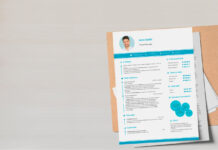
Burnout isn’t something to take lightly. It affects workers of all ages, so you’re not alone if you think you might be headed in that direction.
These 14 signs of work burnout will give you an idea of whether you need to make some changes in your life, even if you don’t fit the textbook definition. If any of these signs apply to you, don’t despair! These are all prevalent and fixable problems, and we’ll help get you back on track so that burnout doesn’t happen again.
What is work burnout?
Work burnout is a state of emotional, mental, and physical exhaustion that results from too much work. It is not just a feeling of being tired or stressed out; it’s an unhealthy pattern of behavior that can affect your physical and mental health.
Work burnout is a common problem for people who work in high-pressure jobs or jobs where they are overworked. It can happen to anyone who feels like they’re working too hard with little time for themselves.
Many factors can cause it, but it mostly happens when people are not engaged in their work. They experience physical and emotional exhaustion, which leads to a feeling of being depleted and cynical. Burnout can happen to anyone, but there are some warning signs that you should look out for if you want to prevent it or if you think that it may have already happened to you.
So, what to do when you hate your job and feel that you are experiencing work burnout? There are some common symptoms from resumekit.com experts:
1. You dread going to work

The most prominent sign of burnout is when people start feeling apathetic about their job. You dread going to work and find yourself constantly looking for ways to get out of it. You might feel like your job doesn’t make sense anymore, that your hard work doesn’t matter or that no one cares about what you do.
You might also feel like your job is too demanding and exhausting, leading to your mental health deterioration and physical health issues such as insomnia or weight loss/gain problems.
2. You’re constantly tired
You’re often exhausted, but you push through anyways. You feel terrible about not being able to meet your deadlines or work as hard as you know you should. Sometimes, the best thing to do is take a break from work. But if that’s not possible, try these tips to help recharge your batteries:
- Take a few minutes for yourself every day
- Learn how to say no
- Plan some time away from the office every week (even if it’s just half a day)
- Treat yourself to healthy snacks and small treats throughout the day.
3. You’re sick more often
If you’re sick more often than usual, it could be a sign that you’re burning out at work. One study found that people who experienced work burnout were four times as likely to report a cold or the flu in the past month than those who didn’t experience it.
It’s important to take care of yourself even if your boss doesn’t seem to care about you or your health. Here are some practical things you can do:
- Take days off when you need them.
- Schedule regular time for recovery. To help manage stress and avoid burnout, it’s crucial to schedule regular time for recovery, and using a reliable PTO tracker can make this process much more manageable.
- Create personal boundaries.
- Ask for help when needed.
4. Your quality of work suffers

It’s easy to get burned out at work. When you feel like your quality of work is suffering, it’s important to take a break. Take an hour for yourself, try some deep breathing exercises, or meditate.
Plus, take more breaks throughout the day instead of working through lunch. It may be hard at first, but it will make you feel better in the long run.
5. You’re irritable
When you start to experience irritability from a lack of energy, it’s time to take a mental break. Irritability can be a sign that your body is reacting negatively to the stress in your work environment.
When you’re feeling this way, it’s important not to push yourself any further. Instead, try some relaxation techniques or give yourself some time off, whichever will help you recharge your batteries the most.
6. You have trouble concentrating
It’s hard to concentrate when you’re feeling burned out. It’s tough to focus on anything other than the fact that you’re feeling crap about your work. But it doesn’t have to be always this way.
There are a few things that you can do in order to help yourself feel better about your work again.
You should take a day off from work when you start feeling that you can’t concentrate on your tasks. This will make it easier for you to focus the next day and give your brain some time off to process everything that has been going on with work so far.
It is important that if you’re feeling burned out, you don’t push yourself too hard at work because this will only worsen things in the long run.
7. You’re forgetful

It’s normal to lose track of things sometimes. But if you’re forgetting to do basic tasks like brushing your teeth or getting dressed, it might be a sign that you’re working too hard. If this is the case, it may be time for a change in your work schedule.
If you can’t seem to remember where you put something important, find out what’s causing the burnout so you can figure out how to fix it.
8. You’re taking more sick days
If you’re taking more sick days than usual, it might be time to call in a doctor. This could mean your body is telling you that you need a break from work.
If you experience a sign of work burnout, take a break from your job for at least one day. There are many ways to get out of an office environment and see the world without spending time in your cubicle. These may include:
- Spending time with family members outside the home
- Participating in hobbies and,
- Volunteer work.
9. You’re not eating as well
If you’re not eating as well as you used to, it could be a sign that you’re feeling overwhelmed. It’s important to take care of yourself by eating well and getting enough sleep so that you can keep going.
When you are stressed, your body releases adrenaline and cortisol, which suppress your appetite. As a result, it becomes harder to eat healthily and maintain a balanced diet.
Here are other things you can do:
- Maintain a healthy diet
- Get enough sleep
- Take care of your health.
10. You’re drinking more

Another sign of work burnout is drinking more. The risk is that you could become dependent on alcohol to cope with the stress, which only leads to more problems.
If you’re feeling overwhelmed at work or in life, try talking to a friend or colleague about what’s going on. You can also use social media to reach out anonymously via a post or tweet that shares your feelings and encourages others to share theirs.
The key is just letting go of some of the stress by getting it off your chest. It may not solve everything, but it might help make things feel less heavy for a while.
11. You’re always angry
The anger phase of burnout usually starts as an out-of-character moment for someone who normally handles their anger well. The best thing you can do for yourself is to give yourself a break from work so you can regain balance again.
12. You’re not meeting your goals at work
Your personal goals may not be clear or achievable, but if they exist, make sure they align with the company’s mission statement. When there is no clear path for how to achieve those goals, start writing down specific objectives and how to meet them.
Sometimes, getting a professional opinion will help clarify what changes need to be made in order for those goals to be achieved.
13. Your friends/family don’t want to hang out with you

Social interaction will probably be difficult when you’re feeling burned out. No one wants to hear about your bad day at work when they already have one themselves!
And if people aren’t interested in hanging out with you anymore because they know it’ll bum them out, then let them go. Their feelings don’t matter. What’s important is the number of people who are willing to help you through your rough patch.
14. You’ve stopped caring
We all go through periods of time where we just don’t care about anything anymore – work included. That said, many people find that once they start caring again – whether it be because of some sort of event or because they got another job offer – the burnout goes away completely.
Other Signs of Work Burnout
Here are other signs that you are experiencing work burnout:
- You can’t stop thinking about work when you’re not at work
- You don’t enjoy what you do for a living
- You’ve been looking for another job
- You’ve lost the joy in your work
- Your social life has taken a back seat to your job
- Work has been taking over your life
- You feel like no one appreciates all the hard work that goes into your job
- You have trouble sleeping or sleeping too much
- You experience stomach problems such as indigestion, heartburn, acid reflux
A Checklist to Know If You Are Experiencing Work Burnout

You can check out your work burnout by asking yourself a few questions:
- Am I feeling overworked?
- Is the job not challenging anymore?
- Am I struggling to find meaning in my job?
- Have I lost interest in the company’s mission and values?
- Are my relationships with co-workers, customers, or colleagues suffering because of work?
- Am I feeling cynical about work lately?
- Does my job feel like a burden to me lately?
If you answered yes to any of these questions, then it might be time for you to figure out what is making you feel this way and how to fix it before it becomes too much for you!
What to Do to Avoid Work Burnout
When you experience these signs, know that you can still do something. We suggest doing the following:
- Take a break from work. There’s no need to stop working altogether, but taking some time for yourself can make all the difference in how you feel about your job.
- Consider how much time you’re spending at work and whether that’s an appropriate amount or not.
- Find ways to stay healthy during the day so that you don’t get sick more often than necessary, which will keep your energy levels up when it comes to your work responsibilities.
- If there are people who are causing you stress at work, try to avoid them as much as possible so that they don’t drag you down even further than you already feel.
- Don’t be afraid to ask for help if you find yourself too busy with work. A great way to do this is by delegating tasks to other coworkers who might have free time on their hands.
- It’s okay if you decide that a career change is what would be best for your well-being – just take some time to explore different opportunities and then go after the one that would be most fulfilling for you (just make sure it pays well).
- Spend quality time with friends and family every week because being close to others can help reduce feelings of loneliness and depression, which both contribute to burnout at work
- Get enough sleep each night since staying well-rested can significantly improve moods while also providing the physical energy needed throughout the day
Maintain Work-Life Balance!

Work-life balance is the most important thing you can do for your mental health, but it’s hard to make time for yourself when you’re constantly busy. It’s important to take time out of your day to prioritize your mental health since work burnout has the potential to be devastating.
Signs of a lack of work-life balance include: not sleeping enough or too much; constant exhaustion; always feeling frazzled or angry; forgetting to eat breakfast; feeling like you’re never able to get everything done at work or home in a timely manner; turning down social engagements because they’ll affect your productivity.
Burnout isn’t always easy to spot, but if you know what to look out for, you can stop it before it does permanent damage to your career and/or mental health.











